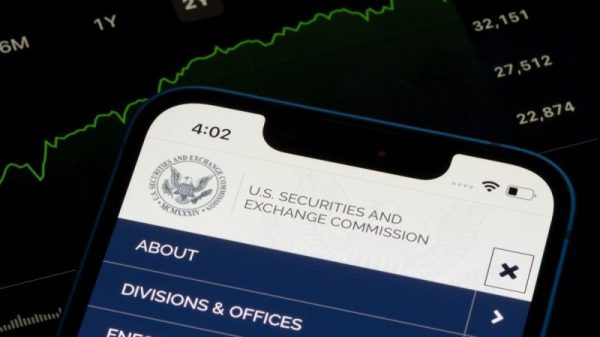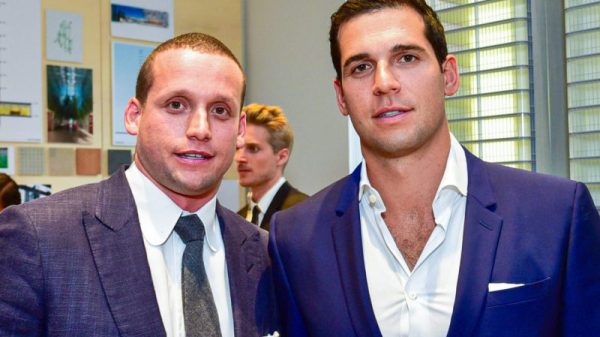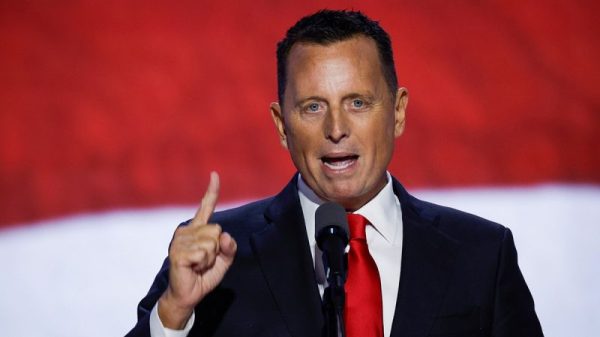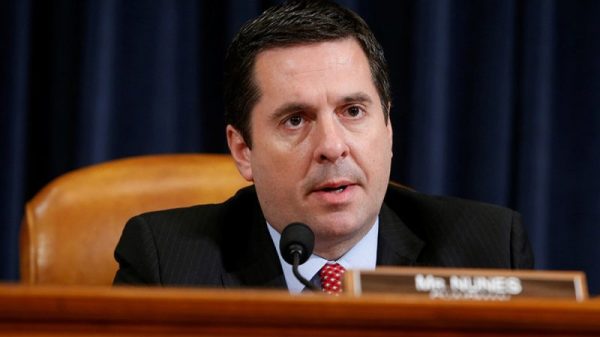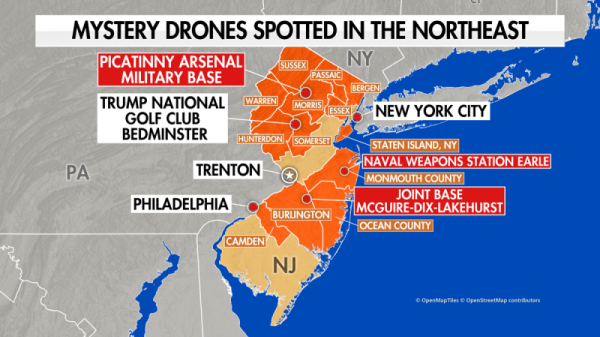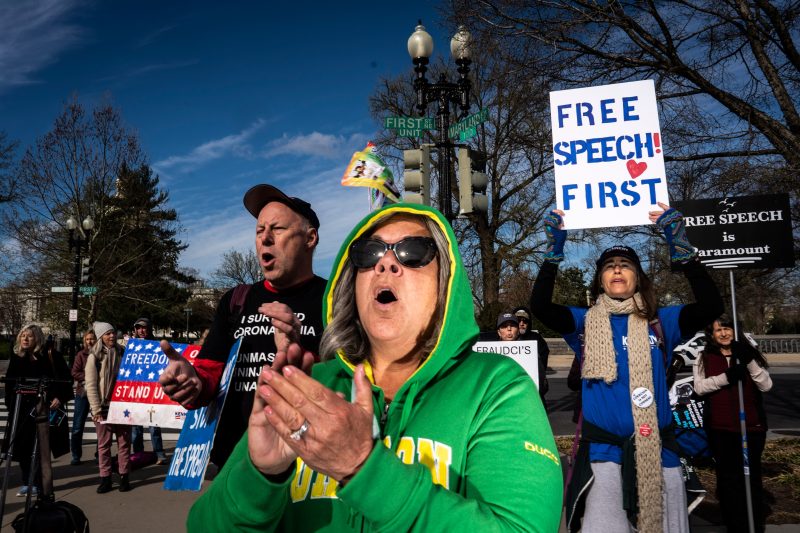The Supreme Court seemed prepared Monday to reject a Republican-led effort to sharply limit the federal government from pressuring social media companies to remove harmful posts and misinformation from their platforms.
A majority of justices from across the ideological spectrum expressed concern about hamstringing White House officials and other federal employees from communicating with tech giants about posts the government deems problematic that are related to public health, national security and elections, among other topics.
The case involves a lawsuit initiated by two Republican-led states — Missouri and Louisiana — and individual social media users. They accuse the Biden administration of violating the First Amendment by operating a sprawling federal “censorship enterprise” to influence platforms to modify or take down posts.
Justices Elena Kagan and Brett M. Kavanaugh, who previously worked as lawyers in Democratic and Republican administrations, respectively, suggested that government exchanges with the platforms and media outlets were routine occurrences and did not amount to censorship or coercion in violation of the constitutional right to free speech.
Chief Justice John G. Roberts Jr. seemed to agree, noting that the federal government has numerous agencies that do not always speak with a single voice.
“It’s not monolithic,” he said in an exchange with the attorney representing Louisiana. “That has to dilute the concept of coercion significantly. Doesn’t it?”
The case gives the Supreme Court an opportunity to shape how government officials interact with social media companies and communicate with the public online at a time when such platforms play an increasingly important role in elections and public debate. The justices are reviewing a lower-court ruling that sharply limited such interactions, and must clarify when government attempts to combat misinformation cross the line from permissible persuasion to unconstitutional coercion.
The dispute is one of several before the justices this term testing Republican-backed claims that social media companies are working with Democratic allies to silence conservative voices online. The outcome could have sweeping implications for the U.S. government’s efforts to combat foreign disinformation during a critical election year when nearly half of the world’s population will go to the polls.
Secretary of State Antony Blinken warned during a meeting in Seoul on Monday of a “flood of falsehoods that suffocate serious civic debate.” Social media and artificial intelligence, he said, “created an accelerant for disinformation.”
The high court on Monday appeared ready to embrace a narrow ruling, with several justices suggesting the states and individuals behind the lawsuit did not have sufficient legal grounds to sue the Biden administration. Some said the individuals could not show a direct link between the government’s pressure on the platforms and the tech companies’ removal of posts that the government deemed problematic.
Kagan pressed Louisiana’s lawyer for evidence that the government — not the social media companies — was responsible for taking down the posts at issue: “How do you decide that it’s government action as opposed to platform action?”
The First Amendment prevents the government from censoring speech and punishing people for expressing different views. But the Biden administration says officials are entitled to share information, participate in public debate and urge action, as long as their requests are not accompanied by threats.
Principal Deputy Solicitor General Brian Fletcher, representing the Biden administration, said government officials have long-standing authority to use the bully pulpit to inform and persuade. The lower-court ruling, he said, would prevent thousands of government officials, including FBI agents and presidential aides, from addressing threats to national security and public health.
The attorneys general of Missouri and Louisiana argued that the federal government went too far by coercing social media companies to suppress speech of individual users and by becoming deeply involved in the companies’ decisions to remove certain content. Tech companies, they said, cannot act on behalf of the government to remove speech the government doesn’t like.
Louisiana Solicitor General J. Benjamin Aguiñaga said the Biden administration had subjected the platforms to unrelenting pressure, using profanity and badgering — not the bully pulpit. “That’s just being a bully,” he told the court.
The record before the Supreme Court includes email messages between Biden administration officials and social media companies, including Facebook’s parent company, Meta, and Twitter, showing tense conversations in 2021 as the White House and public health officials campaigned for Americans to get the coronavirus vaccine. Several justices pushed back Monday on the states’ characterizations of those messages and pointed out inaccuracies in their filings.
“I have such a problem with your brief, counselor,” Justice Sonia Sotomayor said. “You omit information that changes the context of some of your claims. You attribute things to people who it didn’t happen to.”
Aguiñaga apologized and took responsibility “if any aspect of our brief was not as forthcoming as it should have been.”
The toughest questions for the Biden administration came from conservative Justices Samuel A. Alito, Jr. and Clarence Thomas, who, along with Justice Neil M. Gorsuch, dissented earlier this term when the majority temporarily blocked the lower-court ruling allowing contacts with social media companies to continue.
Alito said the intense back-and-forth and constant demands from the Biden administration at the height of the vaccination campaign in 2021 suggested the government was impermissibly coordinating with, and coercing, social media companies.
The administration was “treating Facebook and these other platforms like they’re subordinates,” he said noting that he could not imagine government officials making similar demands of news outlets.
“Do you think that the print media regards themselves as being on the same team as the federal government, partners with the federal government?” Alito asked the government’s lawyer, pointing to the dozens of journalists sitting inside the courtroom.
Gorsuch asked Fletcher whether accusing a company of “killing people” crossed the line into coercion. The question referred to President Biden’s response in July 2021 to questions about how Facebook and other tech platforms were handling misinformation about the coronavirus vaccine.
Fletcher said Biden’s statement was “off the cuff” and meant as an “exhortation, not a threat.” Biden clarified three days later that he was referring to the people spreading misinformation, not the platforms, the attorney said.
Kavanaugh, who worked in the George W. Bush White House, said it’s not uncommon for government officials to warn media companies that articles about surveillance or other military policies could harm war efforts and put Americans at risk.
The initial ruling in the lawsuit came from a conservative district court judge in Louisiana who said the Biden administration appeared to have operated “the most massive attack against free speech in United States’ history.” The court’s order barred thousands of federal employees from improperly influencing tech companies to remove certain content.
The U.S. Court of Appeals for the 5th Circuit narrowed the decision to a smaller set of government officials and agencies, including the surgeon general’s office, the White House, the Centers for Disease Control and Prevention and the FBI. A three-judge panel of the appeals court said the White House probably “coerced the platforms to make their moderation decisions by way of intimidating messages and threats of adverse consequences.” The panel also found the White House “significantly encouraged the platforms’ decisions by commandeering their decision-making processes, both in violation of the First Amendment.”
In October, the Supreme Court intervened and allowed the Biden administration to resume communications with social media companies while the litigation continued. Thomas, Alito and Gorsuch dissented, saying that “government censorship of private speech is antithetical to our democratic form of government.”
Separate from the lawsuit, House Republicans are investigating how tech companies handle requests from Biden administration officials and demanding thousands of documents from internet platforms. Conservative activists have also filed lawsuits and records requests for private correspondence between tech companies and academic researchers studying election and health-related conspiracies.
Rep. Jim Jordan (R-Ohio), who has led the probe of the tech industry and supported the lawsuit by the Republican attorneys general against the Biden administration, attended the argument Monday.
The justices are also set to decide this term whether state laws passed in Texas and Florida can prohibit social media companies from removing certain political posts. The court is expected to reach a decision in those cases, as well as the case involving the Biden administration, by the end of its term probably in June or early July.
Until then, tech companies probably will not make major changes to their programs to counter disinformation, even as the U.S. presidential election approaches, said David Greene, the civil liberties director of the Electronic Frontier Foundation.
The cases, Greene said, “leave the platforms in a position of great uncertainty.”
Monday’s case is Murthy v. Missouri.





